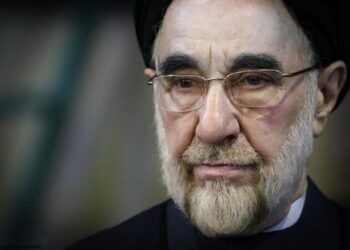The state media are trying to portray the gathering as an endorsement of Iran and a repudiation of Western efforts to isolate it. For example, Majlis deputy Hossain Naqavi said, “Despite the rhetoric and plots of certain arrogant powers against Iran, holding the NAM summit in Tehran indicates that Iran is the center of attention.”
Three years ago, the NAM responded to Iranian entreaties and agreed to allow it to chair the group for a three-year term 2012-2015. The NAM has fallen on hard times since the end of the Cold War. The NAM was created in 1961 as a grouping of countries that did not wish to ally either with the West or the Soviet bloc.
Membership in the NAM made a statement of neutrality. But the size of the group meant it rarely shared other interests and it never really accomplished much. Its irrelevancy may best be demonstrated by the fact that it doesn’t even have a website.
That, however, is likely to change under Iran’s chairmanship. The Islamic Republic is expected to make much of the NAM and to try to use it as a vehicle for pushing its ideas and policies. In fact, Iran has been the most active member of the group for many years. Iran has regularly seen to it that the NAM issues statements that are kindly to Iran.
The 16th summit of the NAM is being held from Sunday, August 26, through Friday, August 31.
One point that will be watched closely is how many chiefs of state show up for the summit. Mohammad-Reza For-qani, an aide to President Ahmadi-nejad who serves as spokesman for the organizing committee, has said that 35 chiefs of state will attend and that more than 100 of the 120 member states would have someone in attendance. He has not announced the countries that are planning to boycott the gathering.
The United States is not enamored of the fact that the Islamic Republic will have a new platform from which to address the world for the next three years. The State Department has indicated that US diplomats have been encouraging countries not to attend or to send lower level officials. The State Department argument is that Iran is flouting UN Security Council resolutions on its nuclear program and should not be treated as a normal state.
Publicly, the State Department is urging countries that do attend to urge the Iranian government to comply with the UN resolutions calling on it to halt uranium enrichment and tell all about its nuclear program.
State Department spokeswoman Victoria Nuland said Monday, “Iran is going to try to manipulate this NAM summit and the attendees to advance its own agenda and to obscure the fact that it is failing to live up to multiple obligations that it has to the UN Security Council, the IAEA and other international bodies.”
She said, “We frankly don’t think that Iran is deserving of these high-level presences that are going thereÖ We would hope and expect that those who choose to go will take the opportunity of any meetings that they have with Iran’s leaders to press them to come back into compliance.”
UN Secretary General Ban Ki-moon has said he will attend. But after he condemned the Islamic Republic this week for calling for Israel’s destruction, there was speculation he might bow out. That would be a major blow for the Islamic Republic.
Nuland said Ban’s presence would send a “strange signal” given Iran’s flouting of UN Security Council resolutions.
Iran swiftly began erecting defensive barriers in case Ban does boycott. For example, Majlis Speaker Ali Larijani said a no-show by Ban “would not cause any problems for the NAM summit, but would diminish the UN.”
Egyptian President Moham-med Morsi is expected to attend. Since he is the current chair of the NAM, his presence would be expected to hand over the chairmanship to Ahmadi-nejad.














